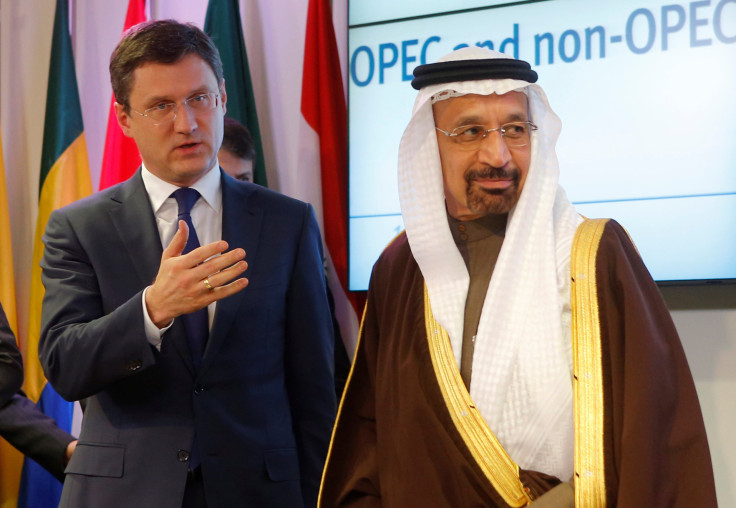Oil Futures: Russia Won't Join OPEC Despite Price Increase And Market Stability After Production Cut

Russia may have partnered with the Organization of Petroleum Exporting Countries last year to jack up the price of oil, but that diplomatic relationship has limits. The Kremlin won’t be joining the 13-member cartel also known as OPEC, Russian Energy Minister Alexander Novak said Monday at a Houston energy conference, according to CNBC.
"Prices are staying at the same level, giving us a sense of stability," he noted. Novak pointed out that the Nov. 30 OPEC deal — in which the cartel pledged to cut 1.2 million barrels per day, after which non-member partners collectively cut nearly 600,000 — has successfully held prices at a stable and higher level.
In the absence of such a deal, Novak added, the market would’ve likely corrected for a drastic drop in the commodity’s price since 2014, to less than $50 per barrel from over $100, but the road to such a rebalancing would have been “chaos.”
Since OPEC’s Nov. 30 agreement, prices have floated up to between $50 and $60 per barrel.
As of Monday, the cartel’s basket price — an index of oil prices from its member countries — recovered slightly from a dip between Wednesday and Friday, sitting at $53.09. The international benchmark Brent crude, which also dropped in price in the middle of the previous week, stood at around $56.50 Tuesday.
Novak made the comments at a five-day conference, known as CERAWeek and hosted by the consultancy firm IHS Markit, which kicked off Monday. Seeking to “provide new insights and critically-important dialogue,” the event featured a wide range of speakers, including Environmental Protection Agency Administrator Scott Pruitt, the CEOs of ExxonMobil Corp. and Chevron Corp., Canadian Prime Minister Justin Trudeau and Khalid Al-Falih, energy minister of key OPEC member Saudi Arabia, according to its website.
A key topic of the conference will likely be compliance with the OPEC deal, among both members and non-members. The cartel’s monitoring committee, which the group formed for the explicit purpose of ensuring that nations follow through on their promises, announced in late February that both subsets of countries “are on the right track towards full conformity with their adjustments in production.”
The monitoring group was slated to meet in Kuwait at the end of March to further discuss whether OPEC members, along with Russia, Azerbaijan, Bahrain, Brunei, Equatorial Guinea, Kazakhstan, Malaysia, Mexico, Oman, Sudan and South Sudan, were following the rules.
© Copyright IBTimes 2024. All rights reserved.






















